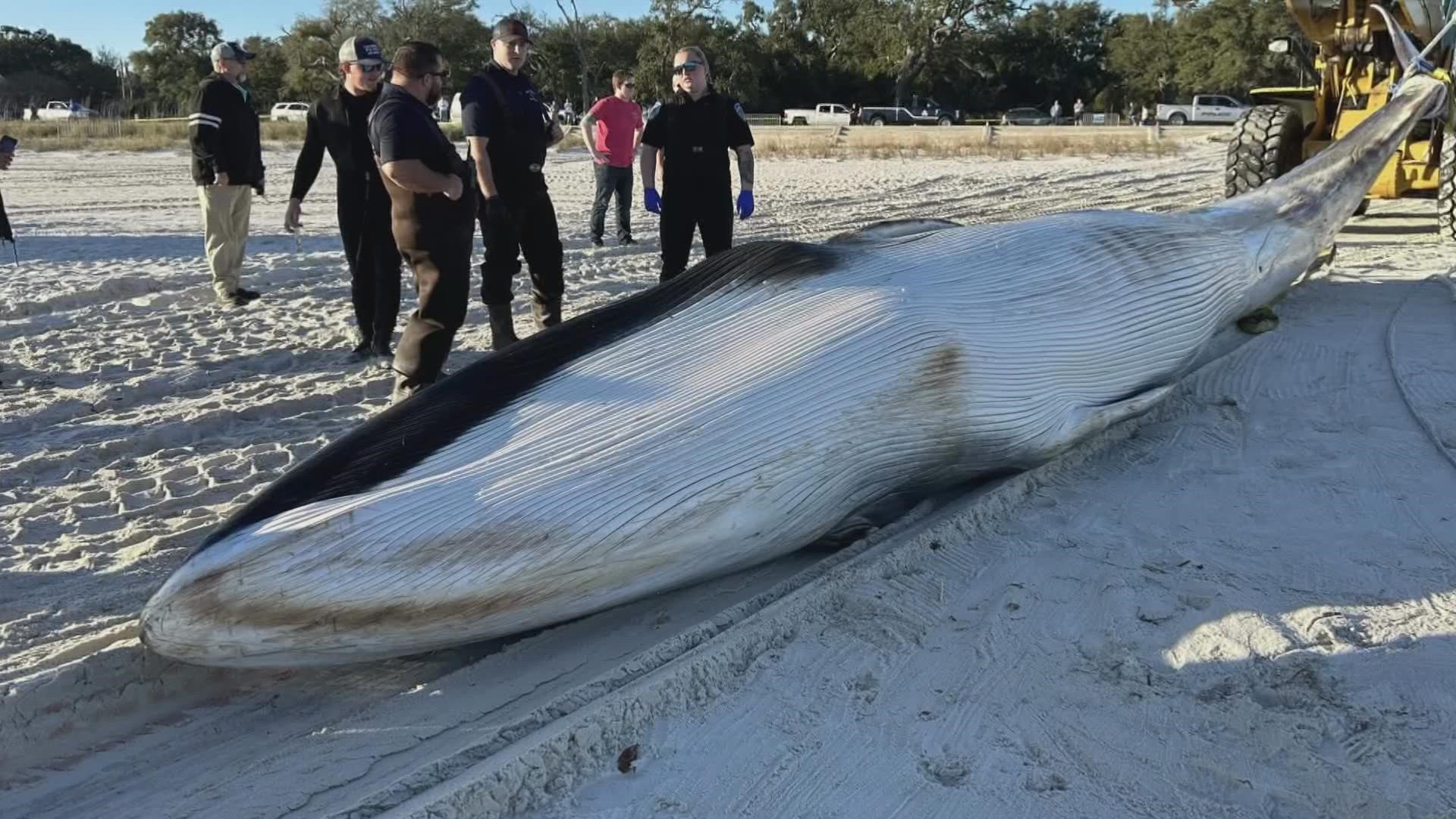PASS CHRISTIAN, Miss — It's a site that has never been seen before on the Mississippi Gulf Coast as a type of whale that can grow to 85 feet long and 100,000 pounds, washed up near the beach in Pass Christian.
Monday morning that whale was removed from the beach, but that was after it sat Saturday night under police security so that all day Sunday, scientists could return to gather rare tissue samples.
The beach in Pass Christian became a marine mammal laboratory for more than 30 federal and local scientists over the weekend. Someone spotted something huge in the shallow water of the Mississippi Sound and called the Institute for Marine Mammal Studies in Gulfport.
“They live in the wild. Only two or three have ever been recovered in the Gulf,” said President and Executive Director of IMMS Dr. Moby Solangi.
He says this is an endangered fin whale, a juvenile male around 4-years-old, weighing six tons. A rope was tied to his tail and a tractor pulled the 35-foot mammal to shore. Since he had recently died, scientists were able to do the necropsy right on the beach and gather rare tissue samples of the species.
“We did not see any human interaction, like any netting, or any prop marks, or boat strikes, or anything. When an animal does get sick, or they lose their group, they head towards shallow waters so that they don't drown, and away from predators.”
So, why did he separate from his pod in the deep Gulf water more than 100 miles off shore? His heart and lungs had parasites. His stomach was empty. There were no signs of the microscopic vegetation and animals he sucks in called plankton. Tissue samples are now in labs across the south to learn more about this little known species, and if he's trying to tell us something more about his home in the Gulf.
“Understanding their plight will tell you what's going on in the entire ecosystem, and basically what we're looking at is these animals as the canaries in the oceanic mine. And when they start dying in unusual events, that means something terrible is going to be happening to the rest of the ecosystem,” explained Dr. Solangi, about the dead zones caused in the Gulf from chemicals and waste that flow down the Mississippi river from 31 states and two Canadian Provinces.
IMMS will save the skeleton of the whale's head and neck, clean it up, and months down the road, put it on display in its Gulfport museum. By the way, its mouth gets to be the size of a large car.
For more on tours, shows and to visit IMMS: https://imms.org/

